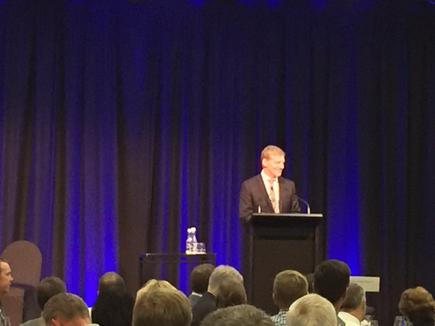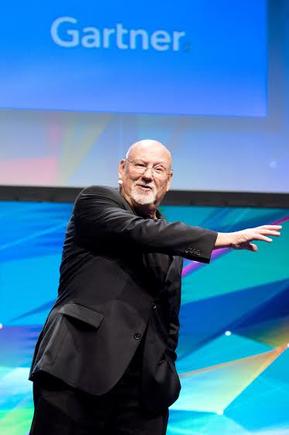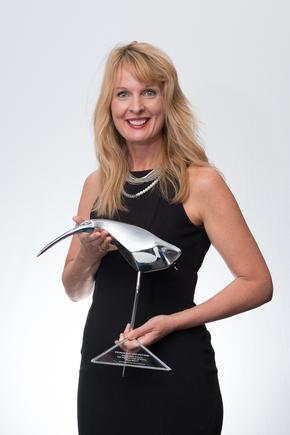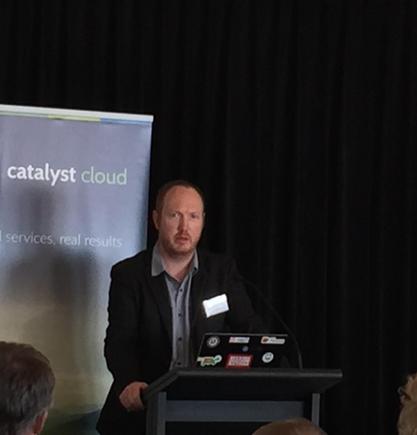Prime Minister Bill English reveals New Zealand has been getting international accolades for its use of analytics to get better results from social welfare programmes.
“The way we use data and analytical tools in the New Zealand government to analyse issues is now being recognised,” English told business leaders at the recent Institute of Directors luncheon in Auckland.
“When I am travelling, representing New Zealand, it is one of the things that spark people’s interest once you get through the diplomatic niceties.”
He says New Zealand has recently signed a deal with the European Union, which will send a group of econometricians to look at what is considered the world’s best or second-best integrated data set for public services.
“That is because we see enormous value in understanding what we are doing about intractable problems, or problems we regarded as intractable, but that turn out are amenable to improvement and change.”
He cites New Zealand has 60,000 fewer children on benefit payment households than five years ago, and now has half the number of solo parents under 20, compared to seven years ago.
“We can work where possible with them one by one and that matters, because the young sole parent and their children are the core of long-term dependency.
“We have focused strongly on getting results.”

Sir Ray Avery's mission
“When we were selling pharmaceuticals, we never tried to sell drugs. We sold customer-centric solutions. That is why we beat our competitors,” says Sir Ray Avery, philanthropist and scientist.
“We went to our customers and asked what do you want?” says Avery, who spoke of his experiences at Douglas Pharmaceuticals, where he was technical director.
“We went to the doctors and we provided them research papers,” says Avery, who later on founded Medicine Mondiale. The company produces quality healthcare and equipment accessible to even the poorest developing nations.
Avery recently shared his insights on innovation, building successful companies and the social responsibilities of businesses, at the launch of the Sir Ray Avery Business Innovation Breakfast series.
He says the series aims to make people think differently about innovation and propose mechanisms for making New Zealand “a global hub for innovation”. Avery invited neuroscientist Dr Kerry Spackman as speaker in the inaugural session.
Avery says Kiwis need to start thinking of themselves as a group of people that actually work together and make “extraordinary things happen on the world stage”.
“Believe in something,” he says. “The All Blacks win because they believe they are going to win.”
Kiwi entrepreneur Bill Buckley, whose company supplies machinery used in the manufacture of more than 90 per cent of the world’s silicon chips, is not in Silicon Valley, but he changed the world, says Avery.
He says an advantage of Kiwis is that they are not fond of rules.
“We have no respect for status quo, we invent things, we change things that propel the human race forward.
“I am passionate about disruptive technology,” he adds. “I want to use the last days of my life to change the world.
“Think about we don’t want to end up with a society that is dysfunctional,” he says. “We can change the world and make it a better place.”
Avery talks about overcoming adversity, having lived in orphanages in the UK until he was aged 14. He needed glasses in school, but had none, so he could not see clearly what was written on the board.
But he says that was the best thing that happened to him because, “It trained me to look at things”.
“The power of observation is the key to innovation,” he says. “All of you are capable of inventing great things just by watching and looking.
“You need that power of observation and to always reflect that back to the customer.
“Who is the customer for that product?”
As to what worked for him as he built his company, he says: “I know everything about my customers. I spend a lot of time doing that. If you understand your customers, you will have a product solution to a customer problem.
“You think about what else those people will possibly want and need,” he says. “You have to constantly refer back to your customers and understand the customers and adopt quickly.”
“But also, the most important customer in your business is people inside your company. They are your primary customers,” he says.
“The difference between a successful company and one that was not successful is, you get divisions within company. You get marketing production, quality assurance, accounts.
“If you all treat each other like family that changes the dynamic,” he says.
You have to develop customer relationships, he says. “Customer relationships last longer than the products you are trying to sell.
“You find niches that nobody else sees and you produce a product for the customer that exists and you know exactly what the customer wants, the price they want and you know the distribution business.
“You have have to start thinking about the customer and not being product centric. You don’t want to sell products to go bust,” he says.
Think about what happened to Kodak, he says. They sold a lot of products and invented digital cameras but did nothing about it.
“Kodak continued to sell products without listening to their customers."

Let us make New Zealand a global hub for innovation

Spotlight on disruptive technologies
Derek Leitch and Neil Creswell, executive directors and co-founders of ViFX, says the company has launched a new division called “Emerging Technology Partners”.
Cresswell says the the new division will focus new-generation, innovative, transformative technologies. These include microservices, DevOps and automation (“Mundane tasks as part of the job of IT add zero value to the business. If they automate those tasks, all of
that free time being reclaimed can be used for innovation,” he says), next generation storage solutions, API enablement and end user access modernisation.
"Our business is not so much implementing their technology," he says. "It is more about advisory, helping organisations to understand what is out there."
Leitch, meanwhile, says,“Enterprise customers need to keep abreast of generational shifts and momentum changes and should be validating if not driving these exciting new technologies as part of their digital transformation”.

Mundane tasks as part of the job of IT add zero value to the business. If they automate those tasks, all of that free time being reclaimed can be used for innovatio
Richard Wilkinson is now the chief technology officer at New Zealand Rugby, following nearly three and a half years as technology officer at Fairfax Media. Before this, he was the CIO at Tourism New Zealand.
Aaron McDonald joins BlockhausCrypto as CTO. The company, based in Switzerland, is building a blockchain-based financial investment banking platform. Mcdonald was previously CEO at Putti.
Liz Coutts has been appointed president of the Institute of Directors (IoD), replacing president Michael Stiassny, while Alan Isaac is appointed vice president.
Coutts is the first female president at IoD and has extensive board experience that includes being chair of Oceania Healthcare, Ports of Auckland, Skellerup Holdings and Urwin & Co.
Nick Hill has been appointed CEO of Auckland Tourism, Events and Economic Development (ATEED), replacing Brett O'Riley. Hill has held senior management positions in a range of companies and organisations over the past 30 years, including Martin Jenkins, the Commerce Commission, SPARC, Santos, Fletcher Challenge Energy, and ECNZ.
Charlie Daily joins MarginFuel in a strategic advisory role to the company’s board. Daily, who was most recently CEO of Promisia Integrative, the NZX-listed therapeutic health supplements company.
Brenton Smith is appointed vice president in Australia and New Zealand for Software AG. He has held senior executive positions in large multinationals such as Quest Software, Symantec, CA Technologies, Business Objects, Siebel Systems and Brightstar Information Technology Group.
Dave Newick joins technology recruitment brand 920 as New Zealand national manager, a newly created role.
Frances Valintine, CEO of Tech Futures Lab and 2017 Flying Kiwi awardee, has invited a group of female tech entrepreneurs to her home as part of the Access2 programme headed by Priti Ambani.
The group of women tech entrepreneurs at the dinner included Alyona Medelyan, Thematic CEO; Rachel Strevens, Ilumony founder and CEO; Vic Jack, Maslow Limited director; Alex Garkavenko, New Zealand Cosmeceuticals co-founder and creative director; Serena Stevenson, Serena Stevenson Creative founder and CEO; and Chelsea Natana of Manukau Institute of Technology.
The goal of the Access2 dinners is to create a supportive atmosphere for up and coming female entrepreneurs. The host, in turn has an opportunity to spend quality time with inspiring women entrepreneurs working on variety of different ideas, says Ambani, who is co-founder and COO @The Next Billion (Formerly Mums Mean Business).




Catalyst IT recently held a briefing on business continuity and disaster recovery on the cloud, for its customers in Auckland, Wellington and Christchurch. Speakers at the Auckland forum were Bruno Lago, GM of cloud computing at Catalyst IT and Doug Dixon, head of systems at Kordia.


Send news tips and comments to divina_paredes@idg.co.nz
Follow Divina Paredes on Twitter: @divinap
Follow CIO New Zealand on Twitter:@cio_nz
Join the CIO New Zealand group on LinkedIn. The group is open to CIOs, IT Directors, COOs, CTOs and senior IT managers.












